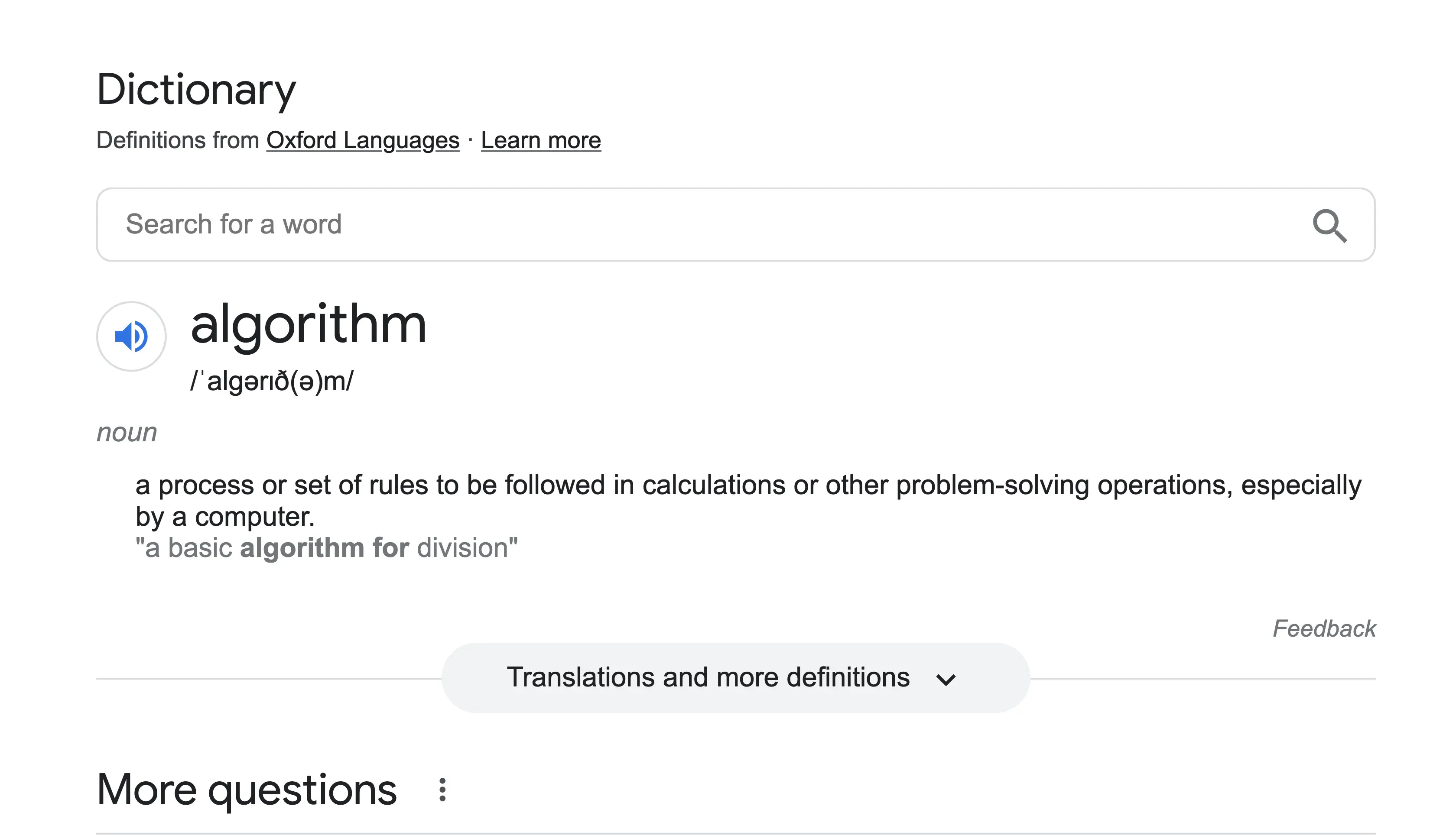Oct 4, 2023
How can I get better results with X’s algorithm? Explaining an algorithm for humans and not robots.

I hear the word algorithm a lot. The Instagram algorithm, the Facebook algorithm, the Youtube algorithm or even Google’s ranking algorithm. There is a lot of misinformation regarding algorithms, especially since many people consider it black magic. I want to shed some light on algorithms from the perspective of a software engineer.
What is an algorithm?
Good question. Let’s start out by stating that it is not witchcraft. An algorithm is a process that performs operations based on a set of overarching rules.
 Definition from Oxford Languages found on Google.
Definition from Oxford Languages found on Google.
In non robotic terms, completing a task like running requires your legs to move one in front of each other, your knees to lift just below your waist and your feet to push off the ground while you lean forward. There are more steps but this is not a fitness blog. However, given a set of rules, an action or operation such as running has its own algorithm. Even more interesting is that many people run differently, adhering to their own set of rules and therefore creating many algorithms. If there is an algorithm for running, you can only imagine the vast amount of algorithms we use every day.
 Person running using their own algorithm.
Person running using their own algorithm.
What about social media algorithms?
We as humans have many algorithms and big software applications also have many algorithms for different processes - not one almighty algorithm to rule them all. This was even stated directly by Instagram a couple years ago when they wanted to clear up how they ranked content.
An algorithm in the software world is clear since it has to be written in concise instructions. The computer is considered naive, I mean, it doesn’t even have legs… yet! However, it does become confusing when the user doesn’t know the set of rules an algorithm follows.
Thus the experts are born who share their tips, tricks and knowledge for maximising results of an algorithm. However, beware of those who share golden tips but do not reference their source of information. There are real experts and there are snake oil salesman.
Can I maximise my results if I know the algorithm?
Of course you can, the issue with social media is that you do not know and will never know their exact algorithm (unless you are the developer). In this case it can feel like black magic. However, each platform creates their own tools and explains how to use them. Google provides advanced documentation for search engine optimisation (SEO). Facebook has transparency documentation explaining rankings and their use of artificial intelligence. Youtube also shares ranking information from their direct channel on how ranking for videos work.
Reading everything does not guarantee results for your content. However, in the case of social media algorithms, it is in their best interest to share videos of higher quality. The word quality is used loosely since what you define as quality may not be 50% of what you see online, but your interests may not be the same as the entire community.
I want a set of rules telling me what to do
Do not fear dear child. I have outlined a few rules I follow when it comes to social media below - dare I say my own algorithm.
- Posting content will rank better 100% of the time than unposted content.
- Review the results of all content, including likes, comments, shares and especially viewing time on videos.
- If you are an entertainer, aim to entertain. If you are an expert, aim to be helpful. Put your own spin on your content.
- Create content you would watch yourself.
- Be consistent and look to improve.
- Don’t be afraid to ask people for feedback, just don’t get stuck on one person’s feedback.
Do not get caught up in the storm of what everyone tells you an algorithm is, no matter what platform it may be. Unfortunately some people aim to profit from sharing and informing others when they are ill-informed themselves.
Algorithms aren’t scary, they are operations defined by rules. Understand what rules you can control through real sources and you will make the most informed decision of all.
